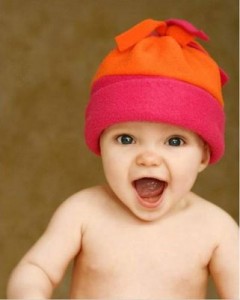
By coincidence I happen to have several women friends all of whom are in their mid-forties, are recently (within the last couple of years) married, and are all either having children or attempting to have them. As you might expect, the ones having babies have had some assistance from modern medicine (twins, anyone?), at times with measures that could be described as extreme, expensive, and even painful. The ones who are still trying are also going through these same things, just without success yet.
I got married when I was 27, which isn’t young but isn’t old. We had JP when I was 33, which again isn’t young (my mother was 21 when she had my older brother) but isn’t particularly old, either. Getting my ex pregnant didn’t prove difficult, the pregnancy was normal, and the delivery was routine (if any birth can be described that way). So, bear in mind that I am aware that I have no room to express the opinion that I am about to express.
Here’s the thing: these women are all extremely successful career women; some of them have husbands who already have children, or who didn’t really want children. They have lives. They traveled and worked through their twenties and their thirties and even their forties. Yet now, somehow, when some women are plotting their retirement and harassing their children about grandchildren, now, a baby has become a pressing life priority. They would be “devastated” if the thousands of dollars they are spending on invasive, risky procedures don’t succeed in bringing them a child for whom they will need to attend his or her college graduation with the assistance of a walker.
Again, I have a child, so who am I to judge, right? And, of course, society says women simply must procreate. Freely stipulated, members of the jury (not judging). But how can they be devastated? They were of child bearing age for decades and now they’re devastated? Someone please help me relate.
When my ex and I were trying to have a baby, I don’t think either of us had a particularly strong drive to have a child. The time seemed right, our careers were reasonably underway, we didn’t have tremendous debts, we owned a house–it just seemed like what you do. I always told myself that if it didn’t work, well no big deal. More money for us.
A typical reaction to this sentiment is that I’m a man and I don’t know what it feels like to want or need a child. This is an odd kind of bunkum in this modern era. Again, we’re talking about confident, busy, career-oriented women who made no effort to have children–and dating in the hopes of meeting “the one” doesn’t count in my book–for years and years. Does that make them men? Isn’t the notion of a furiously ticking “biological clock” sexist and condescending?
Finally, I hope that all of these women are able to conceive. They strike me as capable parents and should have what they want. But, ladies, it’s okay if it doesn’t happen. Really.


